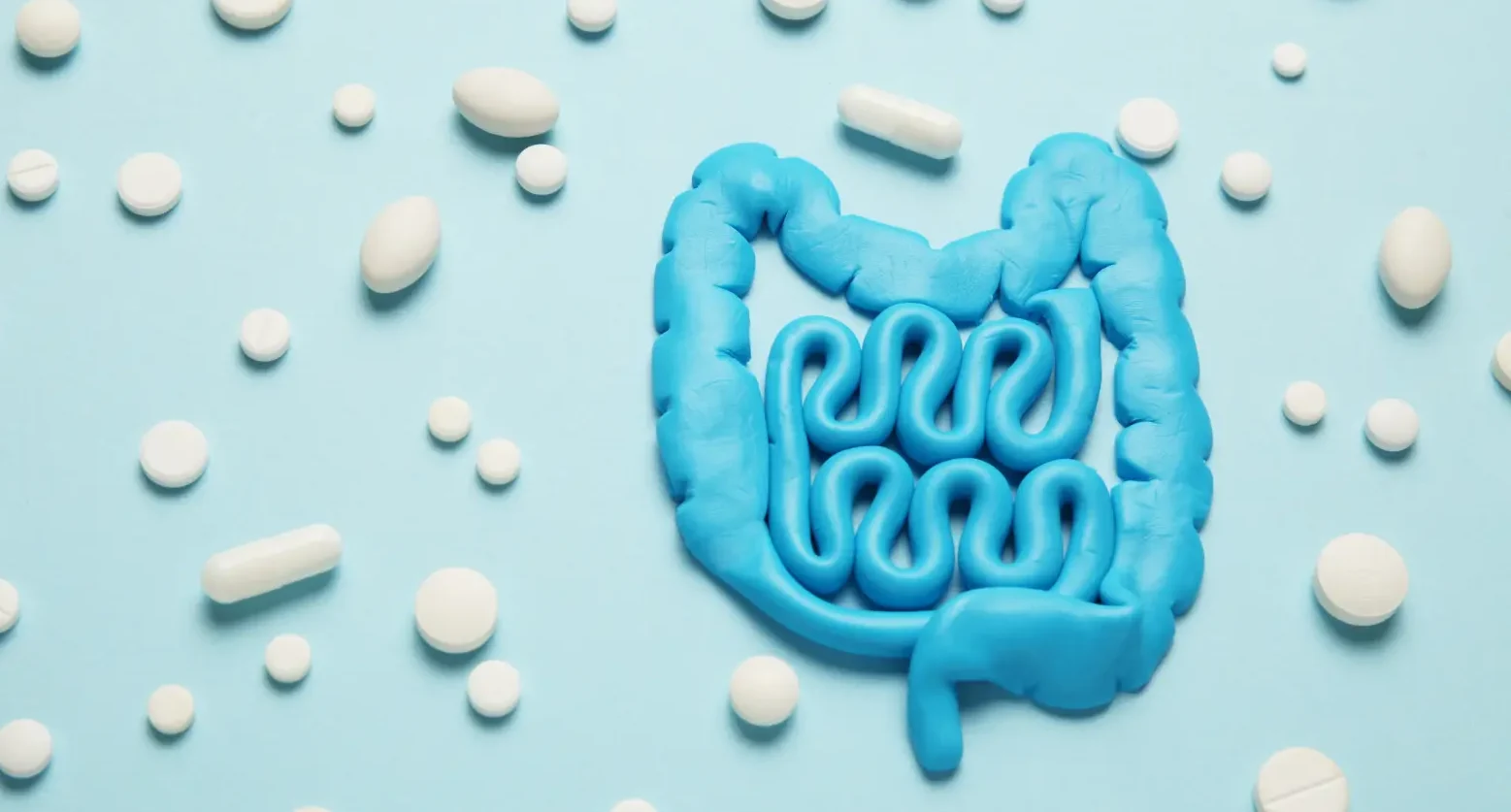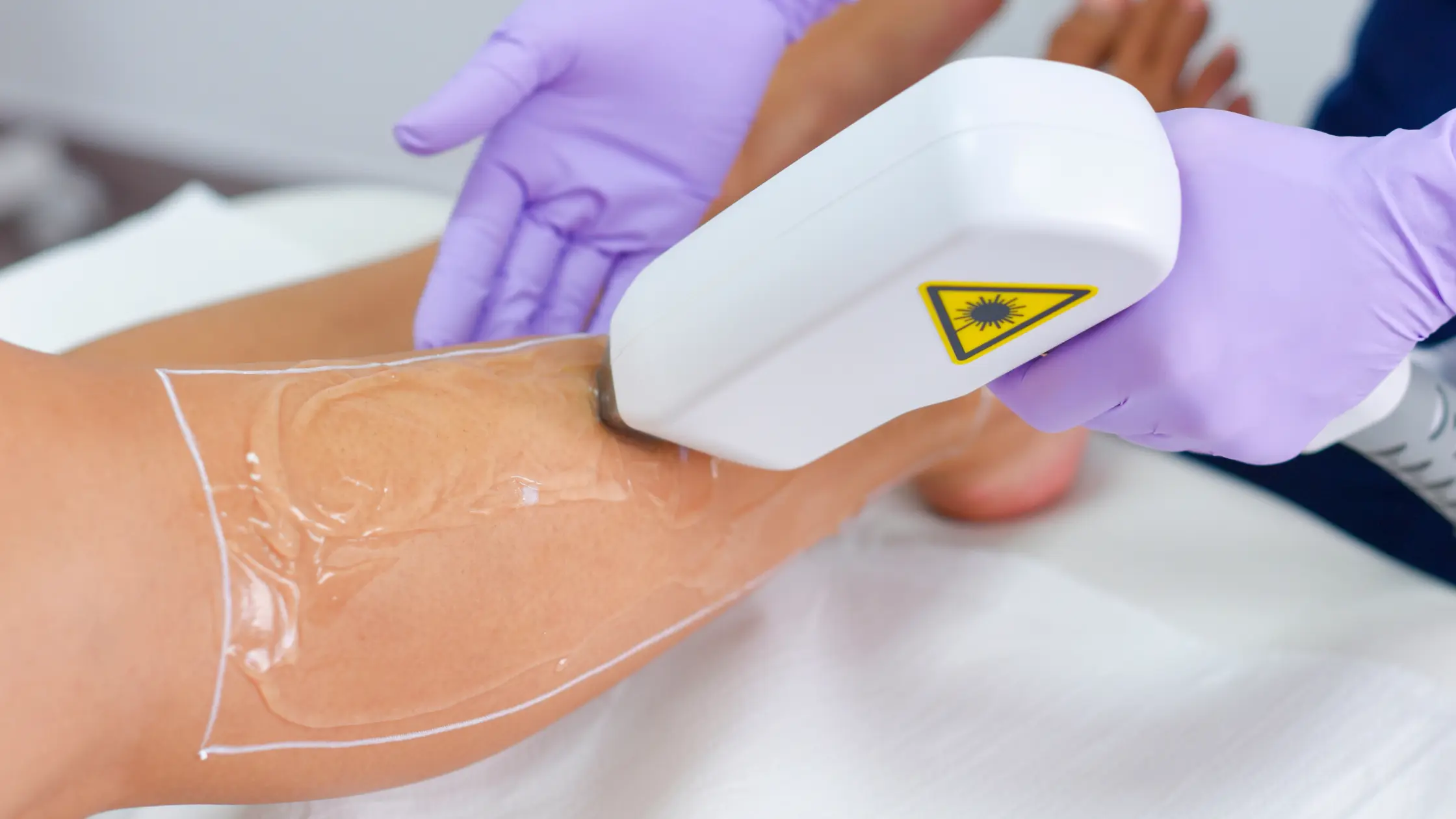It’s normal to worry about what’s safe for you and your unborn child during pregnancy, particularly about diet and supplements. Many expectant mothers ask, “Are probiotics safe in pregnancy?” Probiotics are very popular due to their benefits for digestive health, but are they safe to take while pregnant? To assist you in making an informed choice, let’s examine this crucial subject.
Table of Contents
- What Are Probiotics?
- The Role of Probiotics in the Body
- Are Probiotics Safe in Early Pregnancy?
- Are High-Level Probiotics Safe in Pregnancy?
- Are Probiotic Supplements Safe in Pregnancy?
- Are Probiotics in Yogurt Safe During Pregnancy?
- Are Probiotics Safe to Take in Pregnancy?
- Do Probiotics Prevent Pregnancy Complications?
- Are Young Living Probiotics Safe in Pregnancy?
- FAQ Section on “Are Probiotics Safe in Pregnancy?”
- Conclusion: Are Probiotics Safe in Pregnancy?
What Are Probiotics?

Probiotics are live microorganisms, sometimes known as “friendly” or “good” bacteria, that, when taken in sufficient quantities, have positive health effects. These microorganisms are naturally present in fermented products like yogurt, kefir, and sauerkraut, as well as in kimchi and similar products. They may also be used as dietary supplements, but in the form of liquids, powders, or capsules.
The Role of Probiotics in the Body
Before finding the answer for “are ptobiotocs safe in pregnancy?” it is important to know the roles of probiotics in our body. The benefits of probiotics:
- Promote a Healthy Gut Flora: Probiotics assist in creating and preserving a balance between beneficial and harmful bacteria in the gut. By encouraging appropriate nutrient absorption, a healthy gut flora aids in digestion, inhibits the growth of dangerous bacteria, and enhances general well-being.
- Support Digestive Health: Probiotics promote the digestive system through the control of bowel movements, the reduction of bloating, and alleviation of the pain experienced during diarrhea or constipation. They guarantee an easier digestion process as they help reinstate the intestinal balance, especially after upheavals like antibiotics or gastrointestinal tract problems.
- Enhance Immune Function: Probiotics improve the immune system’s relationship with the gut. They aid by encouraging the generation of antibodies, boosting the activity of immune cells such as macrophages and T lymphocytes, and strengthening the body’s defenses against infections.
Are Probiotics Safe in Early Pregnancy?

When we Discuss about the question “are ptobiotocs safe in pregnancy?” a more specified question “are ptobiotocs safe in early pregnancy?” steps forward. Research generally suggests that probiotics are safe to take in early pregnancy. They do not pose significant risks when consumed in moderate amounts, and some studies even suggest they might help alleviate common pregnancy issues like nausea, vomiting, and constipation.
Potential Benefits of Probiotics in Early Pregnancy:
- Reduced Morning Sickness: Some research suggests that probiotics may help reduce the severity of morning sickness during pregnancy by balancing gut bacteria, which could influence nausea and vomiting. This can help make the discomfort more manageable for some women.
- Gut Health Support: Pregnancy hormones often slow down digestion, leading to issues like constipation and bloating. Probiotics help by promoting the growth of healthy bacteria in the gut, improving digestion, and regulating bowel movements to ease discomfort.
- Immune System Boost: Probiotics support the immune system by enhancing the body’s ability to fight infections. Since pregnant women are more susceptible to infections, probiotics can help bolster the immune response, reducing the risk of illness during pregnancy.
Are High-Level Probiotics Safe in Pregnancy?
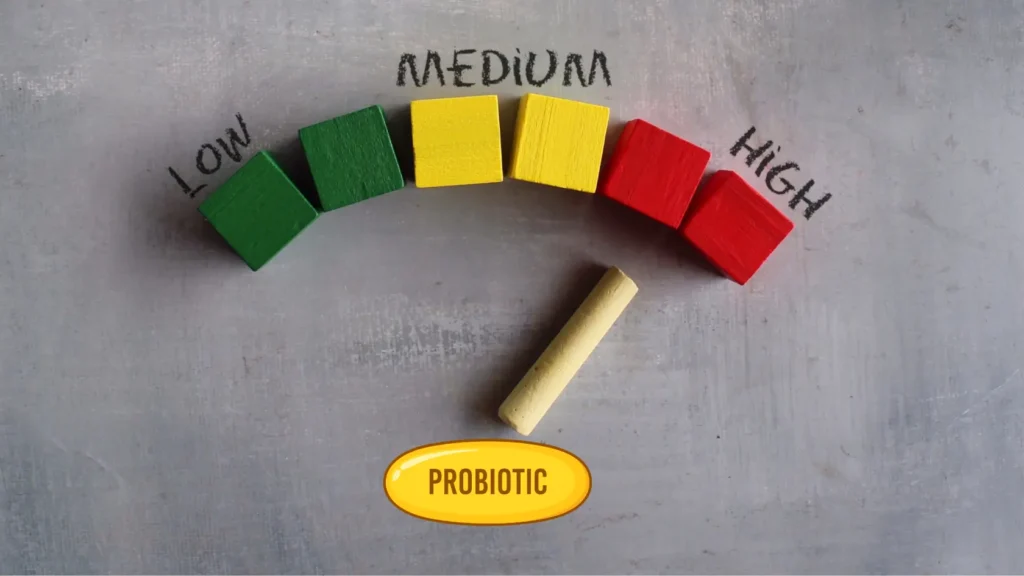
High-level probiotics contain more live bacteria and may raise concerns about safety during pregnancy. This is another question comes to mind when confusion “are ptobiotocs safe in pregnancy?” knocks. They may be more potent than regular probiotics, so it’s crucial to consult with a doctor before using them to ensure they’re appropriate for your health and won’t cause any unwanted side effects during pregnancy.
What Are High-Level Probiotics?
High-level probiotics are supplements with larger amounts of probiotics, measured in CFUs (colony-forming units). They’re often used for specific health issues, such as restoring gut health after antibiotics or addressing conditions like irritable bowel syndrome and improving immune function.
Are High-Level Probiotics Really Safe in Pregnancy?
Moderate probiotics are generally safe during pregnancy, but high-level probiotics may not be necessary unless prescribed by a healthcare provider. Consult your doctor to determine if they are needed for specific conditions like gestational diabetes or digestive concerns that may require higher doses during pregnancy.
Potential Risks of High-Level Probiotics
High doses of probiotics may cause digestive upset, such as bloating, gas, or diarrhea. These issues may be uncomfortable and could potentially worsen if not monitored. Always consult with your healthcare provider to avoid any discomfort or complications when using high-level probiotics during pregnancy.
Key Considerations:
- Consult a Doctor: Before taking high-level probiotics, it’s important to consult your healthcare provider to ensure they are safe for you during pregnancy. Your doctor can advise on appropriate dosages and whether high-dose probiotics are necessary for your specific health needs.
- Strain Specificity: Different probiotic strains offer various health benefits. For example, some strains may support digestion, while others may boost immune function. A healthcare provider can help you choose the right probiotic strain based on your pregnancy health and individual needs.
Are Probiotic Supplements Safe in Pregnancy?
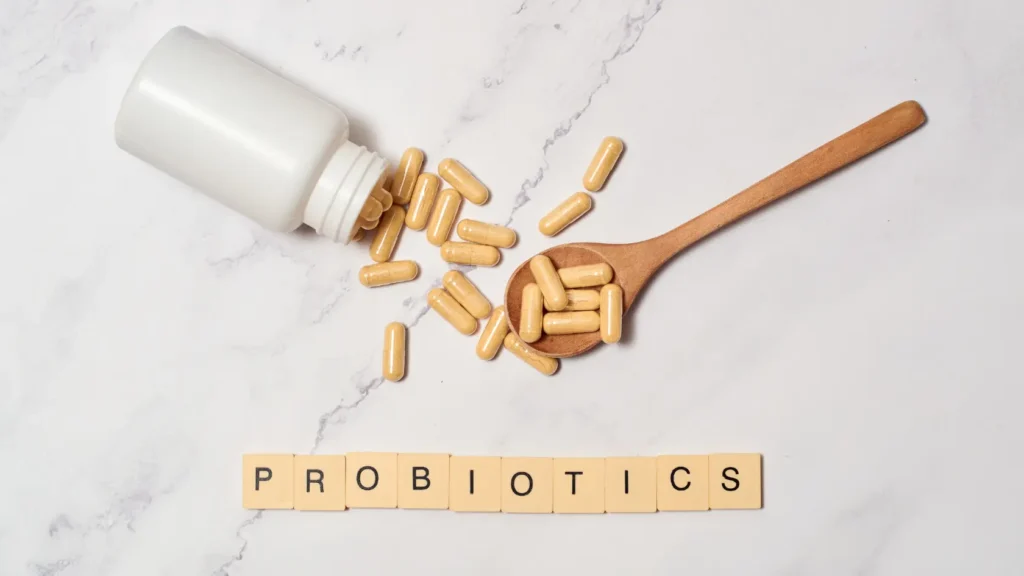
Many women turn to probiotic supplements to meet their health needs, especially during pregnancy, to support digestive health, boost immunity, and manage specific conditions. But are probiotic supplements safe during pregnancy?
Safety of Probiotic Supplements During Pregnancy
Probiotic supplements are generally considered safe for pregnant women as long as they are taken in recommended amounts and come from reputable brands. They are especially beneficial if dietary sources of probiotics are insufficient.
Things to Consider When Choosing Probiotic Supplements:
- Quality Control: Choosing probiotic supplements from reliable companies with robust quality control procedures is crucial. To ensure the efficacy and safety of probiotics during use, look for products that guarantee live probiotics through the expiration date.
- Strain Type: The specific probiotic strains in a supplement matter for targeting specific health benefits. Strains like Lactobacillus and Bifidobacterium are commonly used and widely considered safe for pregnant women due to their proven effectiveness in supporting gut and immune health.
- Dosage: When taking probiotics during pregnancy, it’s best to avoid very high doses unless recommended by a doctor. Standard doses are typically safe, but high levels can sometimes cause digestive discomfort or other issues, so always follow medical advice for dosage.
Are Probiotics in Yogurt Safe During Pregnancy?

Yogurt is one of the most common and accessible sources of probiotics, providing numerous health benefits. So it is too coomon to be curious in case of “are ptobiotocs safe in pregnancy?” to know about yogurt probiotics too. Are probiotics in yogurt safe during pregnancy? Many women wonder if consuming yogurt with live cultures is a safe and effective way to support digestive and immune health during this crucial time. Yes, as long as the yogurt is made from pasteurized milk, probiotics are generally regarded as safe to consume during pregnancy. Yogurt is safe to eat because pasteurization eliminates dangerous bacteria.
Benefits of Yogurt in Pregnancy:
- Gut Health: Beneficial probiotics found in yogurt with live cultures support the maintenance of a balanced population of gut bacteria. This can support overall digestive health by preventing bloating, constipation, and other digestive discomforts that are frequently encountered during pregnancy.
- Protein and Calcium: Both of these nutrients are vital during pregnancy and are abundant in yogurt. Calcium plays a vital role in the development of healthy bones and teeth in the mother and the unborn child, whereas protein helps in the growth and development of the fetus.
Which Types of Yogurt Are Best?
- Greek Yogurt: Greek yogurt is a great choice for pregnant women as it contains higher amounts of probiotics and protein compared to regular yogurt. This makes it more beneficial for supporting gut health, promoting digestive regularity, and providing extra protein needed for both maternal and fetal health.
- Plain Yogurt: It’s best to choose plain yogurt over flavored varieties, as flavored yogurts often contain added sugars. Excessive sugar intake during pregnancy can lead to unnecessary weight gain and may contribute to gestational diabetes, so sticking with plain yogurt helps maintain a healthier diet.
Are Probiotics Safe to Take in Pregnancy?

Although this is a broad question, let’s concentrate on giving a thorough summary. Although this is a broad question, let’s concentrate on giving a thorough summary. Probiotics can help with immunity, digestive health, and even prevent some problems during pregnancy, and they are generally regarded as safe to take. The safety of probiotics, however, differs in accordance with the health status of an individual, the dosage amount taken, and the type of strain.
General Safety of Probiotics During Pregnancy
When taken as directed, probiotics are generally safe to take while pregnant.
- Consult with your healthcare provider: You can and should talk with your doctor before taking probiotics during pregnancy, especially when you are on medication or there is a medical condition. Your medical professional can help you select the most appropriate probiotic and may guide you on whether the probiotics are suitable for you.
- Choose the right probiotics: When selecting probiotics, opt for well-researched strains like Lactobacillus and Bifidobacterium, which have been shown to be safe and effective during pregnancy. These strains are commonly used to support gut health and boost the immune system.
Are There Any Risks?
Although most women can safely take probiotics, there are some potential risks:
- Infection risk: Probiotics can increase the risk of infection in case you have a weakened immune system or when you are pregnant with multiples (twins, triplets, and so on). In these situations, it’s important to speak with your doctor before beginning probiotics to make sure they’re safe for your particular health condition.
- Digestive Upset: Bloating or gas are examples of mild digestive discomfort that can happen when you first start taking probiotics. As your body gets used to the new bacterial balance in your gut, this is typically only temporary. See your healthcare provider if the symptoms continue.
Do Probiotics Prevent Pregnancy Complications?
Research is ongoing, but some studies suggest that probiotics may help reduce the risk of certain complications like gestational diabetes, preterm birth, and preeclampsia. However, probiotics should not replace other prenatal care practices.
Are Young Living Probiotics Safe in Pregnancy?
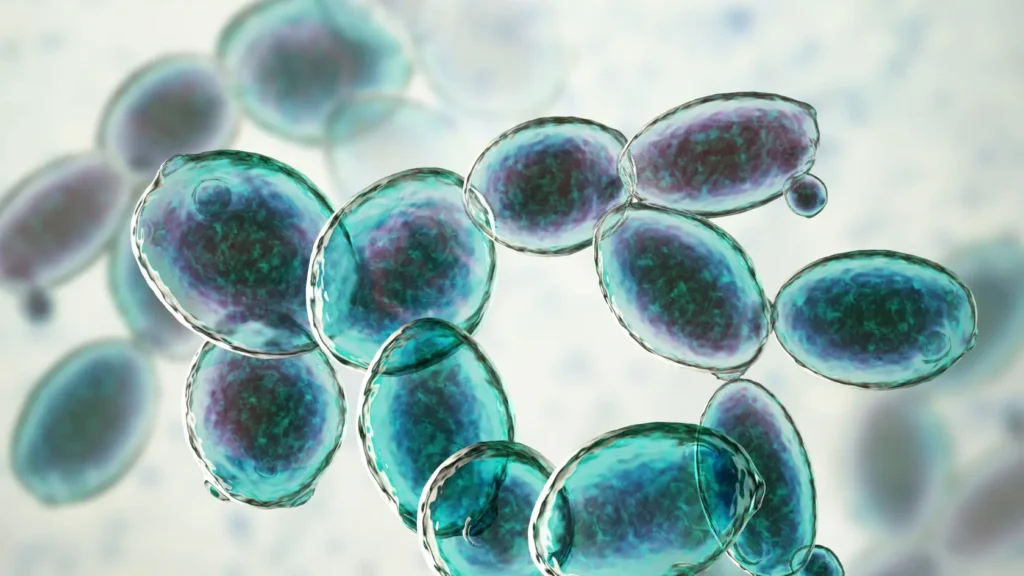
Young Living is a well-known brand that offers essential oils, wellness products, and supplements, including probiotics. While their probiotics may provide potential benefits, it’s important to be cautious about “Are Young Living probiotics safe during pregnancy?”.
Not all probiotics are created equal, and different strains of probiotics have varying effects on the body. Some probiotic strains may be beneficial during pregnancy, while others may not be recommended due to a lack of research or safety concerns. Since pregnancy involves unique health considerations, it’s essential to verify with a healthcare provider whether Young Living probiotics (or any other brand) are safe for you during pregnancy. Your doctor can guide you on the right strains, dosage, and whether probiotics are appropriate for your specific health needs.
FAQ Section on “Are Probiotics Safe in Pregnancy?”
1. Can probiotics cause miscarriage?
There is no proof that taking probiotics can result in miscarriage. In actuality, probiotics may promote a healthy pregnancy by strengthening immunity and enhancing digestive health.
2. How long can I take probiotics during pregnancy?
It is safe to take probiotics during pregnancy. But it’s crucial to change the dosage or stop if your doctor advises it.
3. Can probiotics help prevent yeast infections during pregnancy?
By promoting a healthy balance of bacteria in the vaginal area, probiotics may help prevent yeast infections, especially in those who are susceptible to them.
4. Are there any alternatives to probiotics during pregnancy?
Yes! Prebiotic-rich foods like bananas, onions, garlic, and whole grains help support gut health by encouraging the growth of good bacteria.
Conclusion: Are Probiotics Safe in Pregnancy?
You can decide whether to use probiotics during pregnancy by being aware of the advantages, dangers, and safety factors. Before taking any new supplements, make sure they are suitable for both you and your unborn child by speaking with your healthcare provider.
Explore more on Pregnancy Must –
